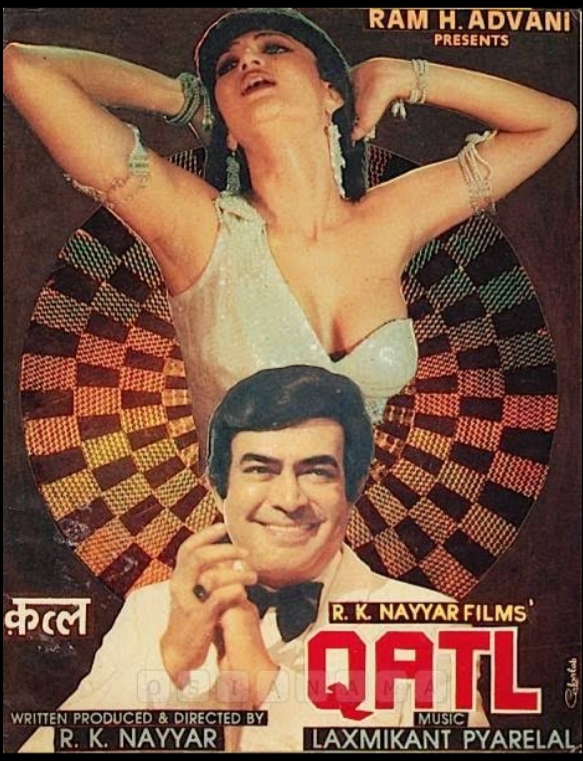aaLAWchak: Chicago
Movie: Chicago
Starring: Richard Gere, Catherine Zeta-Jones, Renée Zellweger, Queen Latifah, John C. Reilly
Director: Rob Marshall
Year of release: 2002
Introduction
Chicago is a 2002 American musical crime film based in Chicago in the 1920s. It explores the themes of celebrity scandal, greed, fame and corruption in Chicago during the Jazz Age. Chicago centers on Roxie Hart (Renée Zellweger) and Velma Kelly (Catherine Zeta-Jones) two murderers who find themselves in jail together awaiting trial. Roxie, a housewife, and Velma, a jazz dancer, fight for the fame that will keep them from the gallows.

Build-up/Plot
In 1924, Roxie Hart watched lead role Velma Kelly perform at a Chicago theater. Wanting stardom for herself, she begins an affair with Fred Casely, who claims to know the manager. After the show, Velma is arrested for killing her husband Charlie and sister Veronica, after finding them in bed together.

A month later, Casely admits to Roxie that he has no showbiz connections and just wanted to sleep with her. Enraged, she shoots him dead. She convinces her husband, Amos (John C. Reilly), to take the blame, telling him she killed a burglar in self-defense. However, when the detective brings up evidence that Roxie and Casely were having an affair, Amos recants. Roxie furiously admits what really happened and is arrested. Ambitious District Attorney Harrison announces he will seek the death penalty.
Jail-time
At Cook County Jail, Roxie is sent to Murderess’ Row, under the care of the corrupt Matron “Mama” Morton (Queen Latifah).

Roxie meets her idol Velma, but her friendship is rudely rebuffed. She learns the backstories of the other women there, including Velma. On Morton’s advice, Roxie engages Velma’s lawyer, the brilliant Billy Flynn (Richard Gere). Flynn and Roxie manipulate the press, reinventing Roxie’s identity as a virtuous woman turned bad by the fast city life. It is claimed by Roxie that she had the affair with Casely because Amos was always working, but repented and dumped him for Amos and Casely attacked her out of jealousy. The press believes the story; portray her as a tragic heroine; and Roxie becomes an overnight sensation. Velma, unhappy at losing the public’s attention, tries to convince Roxie to join her act, replacing the sister that she murdered, but Roxie, now the more popular of the two, refuses her.

Meanwhile, a wealthy heiress, is arrested for murdering her husband and his two lovers, and the press and Flynn pay more attention to her. Roxie quickly steals back the fame by claiming to be pregnant. Amos is ignored by the press. Flynn, to create more sympathy for Roxie, convinces Amos that the child is Casely’s and that he should divorce Roxie in the middle of her predicament. Roxie over-confidently fires Flynn, believing she can now win on her own. However, when Katalin Helinszki, a Hungarian woman on Murderess’ Row becomes the first woman in Cook County history to be executed by hanging, Roxie realizes the gravity of the situation and rehires Flynn.

Proceedings
Roxie’s trial begins, and Flynn turns it into a media spectacle with the help of the newspaper reporters and radio personality Mary Sunshine. Billy discredits witnesses, manipulates evidence, and even stages a public reconciliation between Amos and Roxie when she says the child is his. The trial seems to be going Roxie’s way until Velma appears with Roxie’s diary: she reads incriminating entries in exchange for amnesty in her own case. Billy discredits the diary, implying that Harrison was the one who planted the evidence. Roxie is acquitted, but her fame is eclipsed moments later when another woman, who had also shot her own husband, shoots her lawyer just outside the courthouse. Flynn tells her to accept it, and admits that he tampered with her diary himself, in order to incriminate the district attorney and also free two clients at once. Amos remains loyal and excited to be a father, but Roxie cruelly rejects him, revealing that she is not pregnant, and he finally leaves her.
Finale
Roxie does become a vaudeville performer, but is very unsuccessful. Velma is just as unsuccessful, and again approaches Roxie to suggest performing together: a double act consisting of two murderers. Roxie initially refuses, but later accepts when Velma points out that they can perform together despite their resentment for each other. The two stage a spectacular performance that earns them the love of the audience and the press. The film concludes with Roxie and Velma receiving a standing ovation from an enthusiastic audience (which includes Flynn, Morton, the jurors and other acquitted murderers), and proclaiming that, “We couldn’t have done it without you”.

Analysis and More
This movie may be accused of being inspired by Baz Luhrmann’s ”Moulin Rouge.” It cranks up the temperature by generating excitement with bullet-timed editing and brassy, hip-shaking musical numbers that openly comment on what has come before as well as advancing the story. The film’s plot was inspired by two Chicago women who, in 1924, were accused and later acquitted of having murdered their lovers. Crime reporter Maurine Watkins covered the stories for the Chicago Tribune, and she wrote a play about the women in 1926.[1]
The story is inspired by the screaming headlines of the Front Page era and the decade after. Instead of interrupting the drama with songs, Marshall and screenwriter Bill Condon stage the songs more or less within Roxie’s imagination, where everything is a little more exaggerated than real life. Chicago’s story is narrated in the vaudeville language with almost each and every song in this story is in a specific vaudeville tradition. Therefore, this creates a central premise whereby both lawlessness and crime are greatly glamorized by today’s culture which in turn becomes a popular mode of entertainment.

Richard Gere as Billy Flynn plays a cunning and manipulative lawyer who will do anything to win if paid the right amount. He refuses to let Roxie speak to the press and answers her questions to portray a certain image of her. He also tampers with evidence and comes up with different stories to win in Court.
Reilly brings a kind of pathetic sincere naivete to the role. He is superbly pathetic as Roxie’s cuckolded husband, Amos, and his number “Mr. Cellophane” is one of the film’s highlights. The song, in the movie, is interrupted and Amos replies by saying ‘thanks for listening which only goes to show how he is disregarded throughout the film. Like him all the actors fling into musical performances depicting their emotions and taking the story forward.

The routines are all highly innovative, satirical, playful, exaggerated, and energetic – qualities that fit nicely with the subject matter. Each of the characters represent different themes of the movie – greed, corruption, hunger for fame. The brisk tempo never slows and the visuals never lose their luster. There is a wide rage of songs that display everything from puppetry to tap dance by Richard Gere himself.
Though “Chicago” is far removed from classic Hollywood musicals, its identity as a star-studded, big-budget, contemporary theatrical adaptation of a musical of the same name) is quite the rarity – especially for the 2000s. And this uncommonness was handsomely rewarded at the Oscars, which gave the film six wins, including Best Picture.
It is quite clear that the story creates more relevance in today’s world as compared in 1924. The story itself provides commentary on sensationalism by the media. Today as it can be observed across the globe, media is constantly engaged in making a wider pool of criminal celebrities while the general public is actively involved in protesting against various attempts of legalizing impunity in societies.
[1] Louise Kiernan, Tribune Staff Writer, “Murder she wrote”, available at: https://www.chicagotribune.com/news/ct-xpm-1997-07-16-9707160264-story.html, last visited on: 5th September, 2020
Author: Ms. Pragati Pachisia, JCCLC



